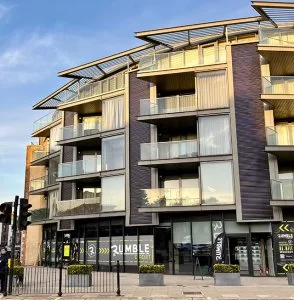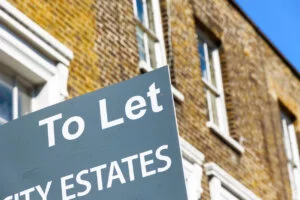Conveyancing Negligence
Residential and commercial conveyancing negligence solicitors
A conveyancer owes a duty of care to their client, which is to manage a conveyancing transaction with reasonable skill and care. Where your conveyancer has let you down, our property negligence lawyers can help you secure fair compensation.
Conveyancing transactions can involve a lot of money and a high level of risk.
As a buyer, you rely on your conveyancer to make sure that you acquire good title to the property, free of any defects that could affect its value or your ability to use it.
As a seller, you rely on your conveyancer to ensure that the transaction proceeds smoothly and that you receive the full purchase price for your property with no comebacks.
Conveyancing negligence can manifest in various ways. From failing to carry out property searches to unclear drafting of legal documents, mistakes made by a conveyancer can have significant and costly consequences for their clients.
At Osbornes, we excel at pursuing conveyancing negligence claims. Whether the conveyancer in question is a solicitor, licensed conveyancer or legal executive, and whether the property is residential or commercial, we can help you hold negligent conveyancers to account for their actions and recover compensation for your losses.
Examples of conveyancing negligence
Conveyancing negligence can occur at any stage in the residential buying and selling or commercial conveyancing process. Some of the errors we frequently see include:
- Failing to carry out searches.
- Drafting errors in contracts, deeds and declarations of trust.
- Inadequate advice on encumbrances such as easements, rights of way and adverse possession claims.
- Failing to advise on planning or other restrictions so you are not able to alter or use the property as you intended.
- Failing to identify boundary discrepancies and neighbour disputes.
- Failing to disclose conflicts of interest.
- Exchanging contracts without the client’s permission.
- Failing to pay off the mortgage on a sold property or a remortgage.
- Failing to register transfers and mortgages.
- Failing to advise on ownership options such as joint tenants or tenants in common
- Failing to secure vacant possession of the property.
Since the list of possible issues is so long, the best way to find out if you have a claim is to get in touch. Our property negligence lawyers are happy to offer a free consultation and advise you on the strength of your case.
How do I prove a conveyancing negligence claim?
Conveyancers sometimes make mistakes, but not every mistake meets the threshold for a successful legal claim. To prove negligence, you will need to show that your solicitor or conveyancer:
- Owed you a duty of care, and
- Breached that duty by acting below the standard expected of their profession, and
- Caused you to suffer financial loss or harm as a result.
Of all the property professions, the legal profession is one of the most highly regulated. Solicitors are governed by the Solicitors Regulation Authority (SRA), licensed conveyancers are regulated by the Council for Licensed Conveyancers (CLC), and legal executives are regulated by the Chartered Institute of Legal Executives (CILEx).
All of these bodies impose strict standards of conduct on their members. These standards encompass various aspects of a conveyancer’s work, including providing competent legal advice, protecting the client’s interests, following proper procedures, handling client funds appropriately, and avoiding conflicts of interest.
Falling short of these standards can open the conveyancer up to disciplinary action as well as a successful professional negligence claim.
What evidence is needed to support a conveyancing negligence claim?
Evidence may include written communications between you and your conveyancer, communications between your conveyancer and the other party involved in the transaction, legal documents related to the transaction, records of funds paid or received, and property search reports.
Your conveyancing negligence solicitor will go through these materials with a fine-tooth comb to build a picture of what the conveyancer did and did not do.
Expert reports will be a key element in supporting your claim. Your solicitor may call for the following types of reports:
- A legal expert in your type of property transaction would assess whether the conveyancer acted competently, that is, whether their actions or omissions deviated from what would be expected of a reasonably competent professional in that situation.
- A surveyor or other property expert may be consulted to determine whether the conveyancer’s negligence caused you financial harm, and what the value of that loss is. Your solicitor will use these reports to value your claim, ensuring that you are fully compensated for any financial losses caused by the conveyancer’s negligence.
How long do I have to make a claim for conveyancing negligence?
In most cases, the time limit for bringing a claim is six years from the date of the negligence.
If you only become aware of the negligence later, then you have three years from this date to bring a claim. This might happen where an easement or usage restriction only comes to light when you try to sell the property, forcing you to sell it for less than the price that you paid. Or perhaps when you try to remortgage, you discover that the property has not been registered at Land Registry.
If you are uncertain of the time limits, call us and we can tell you within minutes if you are in time to make a claim.
How much compensation can I claim for conveyancing negligence?
Generally, your compensation will be equal to the financial losses you have suffered due to the conveyancer’s negligence. This might include:
- The diminution in value of the property.
- The amount of overpayment compared to the property’s true market value.
- The cost of putting the issue right, which can be substantial if you are trying to (for example) acquire a right of way and a new legal team is required to unravel the issues.
- In some cases, emotional distress or inconvenience caused by the negligence.
Each case is unique and the amount of compensation will depend on the specific circumstances of your claim. Your solicitor will work with you to gather all necessary evidence and determine the full extent of your losses in order to seek fair and just compensation for you.
Will I have to go to court for a conveyancing negligence claim?
Conveyancing negligence claims follow a process called the ‘Pre-action Protocol for Professional Negligence.’
Established by the Ministry of Justice, the Pre-action Protocol lays down a series of steps for solicitors to follow before bringing a professional negligence claim. These steps include sending a Letter of Claim to the defendant, allowing them an opportunity to respond, and attempting to resolve the matter amicably before going to court.
In many cases, alternative dispute resolution methods such as mediation and arbitration can help you achieve a good, and relatively fast, result. Our lawyers will advise you on the best course of action for your individual case, and support you through every step of the process.
Should negotiation or alternative dispute resolution be unsuccessful, our team of experienced litigators will be prepared to take your claim to court. This might happen where the conveyancer is unwilling to accept liability or offer a settlement that covers the full value of your losses.
We have a strong record of success in professional negligence litigation. Rest assured that we can provide you with skilled representation to obtain the best possible outcome for your case.
Why work with Osbornes?
If you believe that your conveyancer was negligent, get in touch with the property negligence experts here at Osbornes. With over 40 years of experience pursuing conveyancing negligence claims on behalf of clients nationwide, and with extensive experience handling complex, high-value claims, we can help resolve the matter quickly and secure the damages you are owed.
Even if you are not sure exactly what went wrong, we can help. To speak to one of our specialist conveyancing negligence solicitors, contact us by:
- Filling in our online enquiry form; or
- Calling us on 020 7485 8811
Other property negligence expertise:
Shilpa really helped us take charge of the situation and helped resolve this property dispute. I would not hesitate to recommend her or the team to anyone in a similar situation.
On first meeting Shilpa I was sure that she understood immediately my requirements, and was sympathetic both to my financial restraints and my emotional state. She achieved everything I asked of her and proved to be invaluable, professional and efficient
At every step Shilpa alleviated any concerns and stresses we had. Always fast to respond, always professional and super knowledgeable.
Shilpa has helped us through some key property litigation matters (residential and commercial) since 2014 and has delivered on every occasion. One particular issue had kept us in a state of stress and tension for almost a decade and after getting in touch with Shilpa she was able to help us bring the matter to a peaceful and successful conclusion.
I received a call from Shilpa Mathuradas a couple of hours after filling the enquiry form for a callback. She actively listened to my party wall concerns responding with gentle professionalism, answering my concerns, letting me know what is and is not possible and when best to bring in a solicitor. All this within 10 minutes. Excellent.
"They are an outstanding firm to work with. They are consistently impressive in their work."
Excellent in every aspect.
If I had another reason to have to seek legal advice again, I wouldn’t hesitate to use Shilpa, and would recommend her to anybody who needed legal advice.
Shilpa was professional, realistic, and unflappable. Shilpa managed to persuade a reluctant witness to come forward to support my case. She obviously knows her subject very well.
I always had full confidence in Shilpa keeping my best interests at heart. I often didn’t understand the legal language, and she would follow this up with a phone call and patiently explain.
Property News & InsightsVIEW ALL
- 5.3.2025
TOLATA Claim Settled At Mediation
Complex TOLATA claim settled after an extensive mediation We recently settled at mediation, a complex TOLATA case involving a dispute...
Read more - 4.12.2024
Security of Tenure
Security of tenure gives business tenants the right to stay in their property after the lease ends and request a...
Read more - 4.12.2024
Section 25 Notices
A Section 25 notice plays an important role in commercial leases, letting landlords and tenants know what’s next when a...
Read more - 4.12.2024
Section 21 Notices
Guide to section 21 no-fault evictions Evicting tenants is never easy but under the no-fault eviction process, it should be less...
Read more - 18.11.2024
Rent Repayment Orders
Guidance for Rent Repayment Orders (RROs) for Landlords in the UK Rent Repayment Orders (RROs) are legal orders requiring a...
Read more - 13.11.2024
Evicting a Tenant
How to evict a tenant: Guidance for landlords Evicting tenants is rarely straight forward. It is a challenging and complex...
Read more - 16.10.2024
Managing Litigants: Court Powers and Defendant Options
How can the court control a litigant? Most people wish to live out their lives without the need to face...
Read more - 15.10.2024
How do you determine a boundary?
Whether the boundary dispute relates to a rear garden boundary or whether it relates to a driveway, the issue of...
Read more - 14.10.2024
Can You Challenge a Restrictive Covenant?
Challenging a restrictive covenant! Is it obsolete? It is well known that section 84(1) of the Law of Property Act 1925 allows...
Read more - 22.3.2024
The Renters Reform Bill
A Review of the Renters Reform Bill The 2019 Conservative Manifesto made a commitment to end “no fault evictions”. This has...
Read more - 22.3.2024
Client successful in TOLATA proceedings
The case related to proceedings under the Trusts of Land and Appointment of Trustees Act 1996 (“TOLATA”) in respect of joint...
Read more - 23.1.2024
Freehold Service Charge Disputes
Service Charges & the Leasehold and Freehold Reform Bill The Leasehold and Freehold Reform Bill was introduced to Parliament on 27...
Read more - 23.1.2024
Know your Rights (of Way)
If you have a question or concern over a right of way on your property, it is important to seek...
Read more - 23.1.2024
Party Wall Etc Act 1996 v Common Law
The case of Power & Kyson & Shah [2023] EWICA Civ 239 The case of Power & Kyson & Shah [2023] EWICA Civ 239...
Read more - 27.10.2023
The Building Safety Act 2022
Introduction to the Building Safety Act 2022 This much awaited Building Safety Act 2022 was introduced into Parliament on 5th May 2021 as...
Read more - 22.8.2023
Reasonableness of Service Charges
Reasonableness of Service charges under the Landlord and Tenant Act 1985 It is well known that the relevant costs that a...
Read more - 11.5.2023
Overlooking Nuisance Claims
The Supreme Court’s Ruling on Overlooking as Private Nuisance In the case Fearn v Tate (2023) UKSC 4, the UK Supreme...
Read more - 5.2.2023
Japanese Knotweed: Knot in my backyard again!
Huge legal bill after selling home with Japanese knotweed Many will have read the recent case in which a furniture...
Read more - 9.6.2022
TOLATA Claims
What is a TOLATA claim? A TOLATA claim is a legal process under the Trusts of Land and Appointment of...
Read more - 8.6.2022
Right to Light Explained
What is the Right to Light? The right to light is a type of ‘easement’ – a legal right giving property...
Read more - 8.6.2022
The Dangers of Rent-to-Rent
What is Rent-to-Rent? Rent-to-Rent refers to the practice of landlords letting a whole property to a tenant (usually a limited...
Read more - 5.10.2021
Buying a Property with a Party Wall Agreement
Introduction to buying a house with a party wall agreement Buying a property can already be stressful, but finding out...
Read more - 10.8.2021
Beneficial Interest in Property
What does beneficial interest in property mean? A beneficial interest in property gives someone the right to share the benefits...
Read more - 26.6.2021
The Risks Of Buying Properties Off Plan!
Buying Property Off Plan The Daily Mail reported that 300 families a week have to move into shoddy newly built homes....
Read more
The Property Litigation Team View the whole team
William Ford
Partner
Housing and Social CareShilpa Mathuradas
Partner
Property LitigationMuna Adam
Solicitor
Property LitigationJames Mayall
Solicitor
Property LitigationEllie McEvoy
Paralegal
Property LitigationAlex McMahon
Senior Associate
Housing and Social CareLeopoldine Mineo
Solicitor
Property LitigationAlex Panayi
Solicitor
Property LitigationHeena Shah
Solicitor
Property LitigationAnna Van-Haute
Paralegal
Property LitigationView the
whole team



























